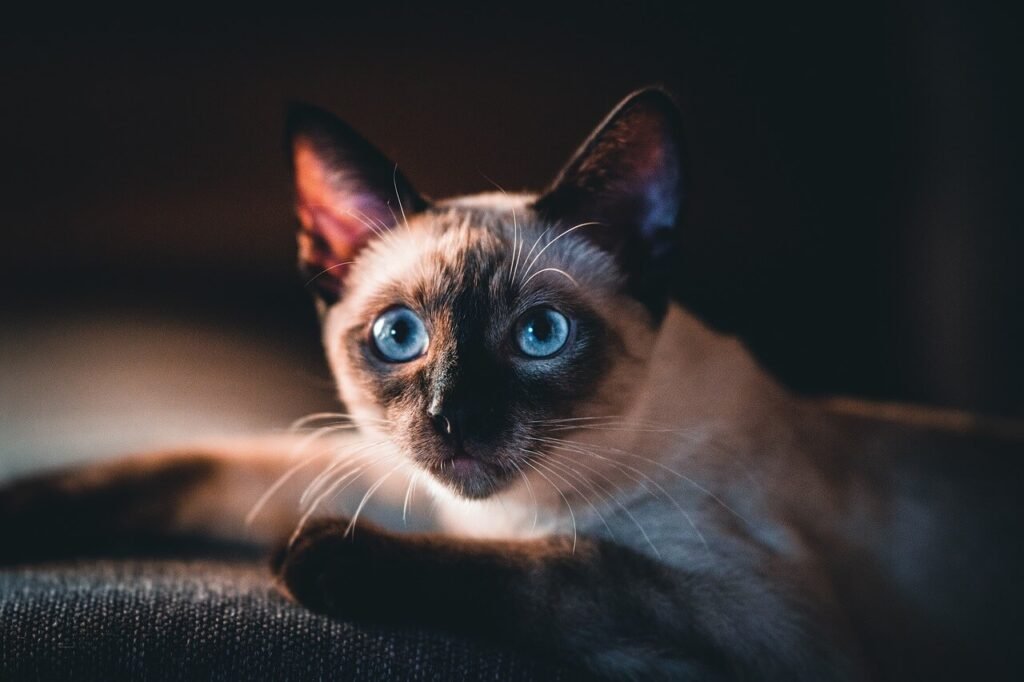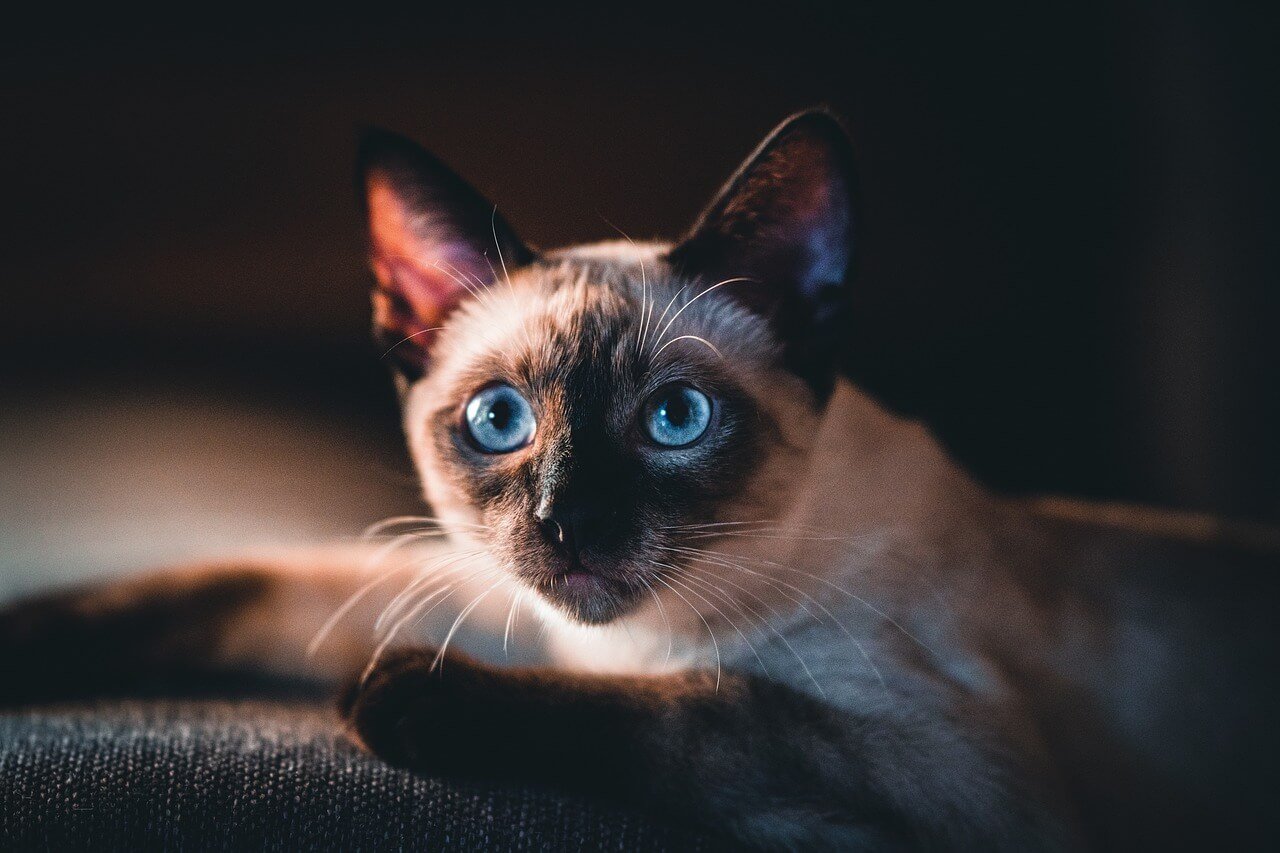Why Is My Cat Drooling When I Pet Him? Understanding This Curious Behavior
If you’ve ever noticed your cat drooling while you’re petting him, you might be wondering what’s going on. While some cats drool out of pure contentment, excessive or unusual drooling can sometimes signal underlying issues that need attention. Whether it’s a sign of happiness, stress, or a potential health concern, understanding why your cat is drooling is key to ensuring his well-being. In this article, we’ll explore the possible reasons behind this behavior, how to differentiate between normal and problematic drooling, and what steps you can take to address it. By the end, you’ll have a clearer picture of what your feline friend might be trying to tell you.
Decoding the Drool: Why Do Cats Drool?
Drooling in cats can stem from a variety of causes, ranging from harmless expressions of pleasure to more serious health concerns. Here are some common reasons why your cat might drool when you pet him:
Sign of Contentment :
Many cats drool as a reflex when they’re extremely relaxed or happy during petting sessions.Dental Issues :
Problems like gingivitis, tooth decay, or mouth ulcers can cause discomfort and lead to drooling.Nausea or Digestive Upset :
Cats may drool if they’re feeling nauseous or have an upset stomach.Allergic Reactions :
Exposure to allergens, such as certain foods or chemicals, can trigger excessive drooling.Respiratory Infections :
Conditions like sinus infections or upper respiratory issues can result in increased saliva production.
While occasional drooling during petting is usually harmless, persistent or excessive drooling should not be ignored. Monitoring your cat’s overall behavior and consulting a vet can help determine the root cause.
When Drooling Becomes a Concern: What to Watch For
Not all drooling is benign, and certain signs can indicate that your cat’s drooling is linked to an underlying issue. Pay close attention to these red flags that suggest your cat may need veterinary care:
Foul Breath :
Bad breath accompanying drooling could point to dental disease or infection.Changes in Eating Habits :
If your cat avoids food or seems reluctant to chew, it might indicate oral pain.Excessive Drooling :
Large amounts of drool that soak your cat’s fur or bedding are a cause for concern.Behavioral Changes :
Lethargy, aggression, or hiding can signal discomfort or illness.Swelling or Discharge :
Visible swelling in the face or discharge from the mouth or nose requires immediate attention.
These symptoms often accompany drooling and can help you identify whether your cat is experiencing a medical issue. Early intervention is crucial for resolving potential problems.
Check this guide 👉Why Is My Cat Drooling Thick Saliva? Best 7 Expert Tips!
Check this guide 👉Why Does My Cat Drool When Happy? Best 7 Expert Tips!

Harmless Causes of Drooling | Problematic Causes of Drooling |
|---|---|
Contentment during petting | Dental disease or oral infections |
Kneading or purring reflexes | Nausea or digestive issues |
Mild excitement or relaxation | Respiratory infections |
Temporary response to tasty food | Allergic reactions or irritants |
Normal grooming habits | Neurological disorders |
What You Can Do About Your Cat’s Drooling
If your cat’s drooling seems excessive or concerning, there are several steps you can take to address the issue. Here’s a guide to help you manage the situation effectively:
Visit the Vet :
Schedule an appointment to rule out dental, respiratory, or systemic health issues.Monitor Diet and Eating Habits :
Ensure your cat’s food is appropriate for his age and health needs, and look for signs of difficulty eating.Check for Allergens :
Identify potential irritants in your home, such as cleaning products or plants, and remove them.Maintain Oral Hygiene :
Regularly brush your cat’s teeth or provide dental treats to prevent plaque buildup.Observe Stress Triggers :
Minimize stressful situations that might cause anxiety-related drooling, such as loud noises or unfamiliar environments.
Taking proactive measures can help alleviate your cat’s discomfort and ensure his long-term health. Always prioritize professional advice when in doubt.
Making Petting Time Enjoyable for Your Cat
Petting should be a relaxing experience for both you and your cat. If drooling occurs during these moments, consider adjusting your approach to make it more enjoyable for your feline friend:
Know His Preferences :
Some cats prefer gentle strokes, while others enjoy firmer pressure; observe what he likes best.Avoid Sensitive Areas :
Stay away from areas like the belly or tail base, which many cats find uncomfortable.Limit Session Length :
Short, frequent petting sessions are often better than long ones that might overwhelm your cat.Watch for Warning Signs :
Look for signs of overstimulation, such as twitching skin or flattened ears, and stop if needed.Create a Calm Environment :
Ensure the space is quiet and free of distractions to keep your cat relaxed.
By tailoring your interactions to your cat’s preferences, you can enhance bonding time and reduce the likelihood of stress-induced drooling.
Sensitive Spots: Why Certain Areas Make Cats Drool
While petting is usually a pleasant experience for cats, certain areas of their body can trigger drooling due to heightened sensitivity or stimulation. Understanding these trigger zones can help you refine your petting technique and avoid overstimulation.
The Base of the Tail :
This area is packed with nerve endings, and touching it can elicit strong reactions, including drooling.The Chin and Cheeks :
Many cats love chin scratches, but overstimulation here can lead to excessive drooling.Behind the Ears :
Gently rubbing this spot can be soothing, but some cats may become overly relaxed and start drooling.The Belly :
While some cats enjoy belly rubs, others find it uncomfortable and may drool as a stress response.The Back Along the Spine :
Running your hand along the spine can stimulate nerves that cause drooling in sensitive cats.
By identifying which areas trigger drooling, you can adjust your petting style to keep your cat comfortable and happy. Always pay attention to his body language to avoid crossing the line into overstimulation.
Soothing Strategies: Helping Your Cat Relax
If your cat’s drooling is linked to stress or anxiety, there are several ways you can help him feel more at ease. Creating a calming environment and using positive reinforcement can make a big difference in reducing stress-related behaviors.
Provide Safe Spaces :
Set up cozy hiding spots where your cat can retreat when feeling overwhelmed.Use Calming Scents :
Products like pheromone diffusers can help reduce anxiety and promote relaxation.Stick to a Routine :
Cats thrive on predictability, so maintaining a consistent schedule can minimize stress.Engage in Playtime :
Interactive toys and activities can distract your cat from stressors and release pent-up energy.Avoid Loud Noises :
Keep your home quiet and free of sudden loud sounds that might startle your cat.
These strategies can help your cat feel secure and reduce stress-induced drooling. A calm cat is a happy cat, and these steps will foster a peaceful environment for both of you.
Red Flags: Knowing When Drooling Is an Emergency
While occasional drooling may not be a cause for concern, some situations require immediate veterinary care. Recognizing these emergency signs can save your cat from further discomfort or complications.
Difficulty Breathing :
Drooling accompanied by labored breathing could indicate a blockage or respiratory issue.Swelling of the Face or Throat :
Sudden swelling may suggest an allergic reaction or injury that needs urgent treatment.Lethargy or Weakness :
If your cat seems unusually tired or unresponsive, it could signal a systemic problem.Vomiting or Diarrhea :
These symptoms alongside drooling may point to poisoning or gastrointestinal distress.Pawing at the Mouth :
Constantly pawing at the face could mean your cat is experiencing oral pain or a foreign object stuck in his mouth.
In these cases, delaying veterinary care could worsen your cat’s condition. Trust your instincts—if something seems off, it’s always better to err on the side of caution and consult a professional promptly.
Frequently Asked Questions About Cat Drooling
Is it normal for cats to drool when they’re happy?
Yes, some cats drool as a natural response to extreme relaxation or contentment.
Should I worry if my cat drools occasionally?
Occasional drooling is usually fine, but consistent or heavy drooling warrants a vet visit.
Can teething kittens drool?
Yes, teething can cause mild drooling in kittens as their adult teeth come in.
How can I tell if my cat has dental problems?
Look for signs like bad breath, pawing at the mouth, or difficulty eating.
Can stress cause drooling in cats?
Yes, anxiety or fear can lead to drooling, especially in unfamiliar situations.
Final Thoughts: Understanding Your Cat’s Drooling Behavior
Drooling in cats can be a sign of many things, from pure bliss during petting sessions to potential health issues that require attention. By observing your cat’s overall behavior and knowing the difference between harmless and problematic drooling, you can better meet his needs and ensure his well-being. Remember, your veterinarian is always your best resource if you’re unsure about your cat’s condition. With patience, care, and a little detective work, you’ll be able to decode your cat’s drooling habits and strengthen the bond you share. After all, every purr and every droplet tells a story—listen closely, and you’ll learn just how much your cat trusts and loves you.
Do Cats Have Taste Buds? Best 7 Expert Tips! – Discover how cats experience flavors and why their taste is so unique.
Do Dogs Have Taste Buds? Best 7 Expert Tips! – Discover how dogs experience taste, their preferences, and what it means for their diet and health.
Can Cats Taste Sweet? Best 7 Expert Tips! – Discover why cats can’t taste sweetness, how it affects their diet, and tips to keep them healthy and happy.
Can Dogs Taste Sweet? Best 7 Expert Tips! – Discover how dogs perceive sweetness, which foods are safe, and tips to manage their sweet cravings responsibly.





